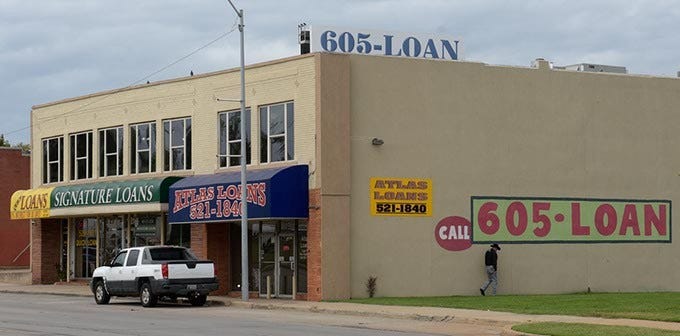
Fundamentally, government was created to coordinate the behaviors of groups of humans such that the productivity and well being of the individual, and thus the collective, would increase. However, like all economic activity, the effective coordination of human behavior, even with the most basic of government institutions, has a cost. How do we pay for that cost? As we all know, the government’s primary method of collecting revenue in order to fund its operation is through levying some sort of tax system. Symmetrically, a tax you pay is a yearly subscription to access the government’s services where you live. Unlike a subscription service for a product like Netflix, which is a fixed cost between multiple tiers, the subscription cost for government services is a percentage of the income you make. A fundamental difference.
The business model the government effectively runs on is as follows: providing certain services at free or reduced costs to its citizens by charging them a % rate of their income for access to that service. It hopes that the access to the service increases the wealth of its citizenry and therefore covers the cost of providing that service. It can provide healthcare for free because healthier people produce more tax dollars. It can provide education for free since better educated individuals produce more tax dollars. It can provide legal and financial services for free for the same exact reason — people with access to the service will be richer in the future. So the government makes money by making its citizens richer and taking a percentage of that newly increased amount.
This is antipodal to the business models of nearly every private sector company. Private sector companies make money by charging a flat rate for the acquisition of their product or service. Therefore they, typically, provide their products and services only to those who can afford their upfront cost or who can afford the cost of any financing options. Despite the fact that government’s business model is ostensibly better for consumers, government’s incentives, if not aligning against consumers, don’t always align towards consumers’ goals. Whether it be due to regulatory red-tape, partisanship or bureaucratic quagmire, government services often fall short of fulfilling the goals that legislatures originally set out to achieve and, more importantly, the needs of those who could be helped the most.
Heroic wants to make it possible for private companies to provide such services by offering them a new revenue model. We seek to remedy the flaws of our modern economy by combining the consumer-centric approach of government with the profit-based incentives of private corporations. The underpinnings of this solution? Income share agreements (ISAs). Income share agreements are a contract in which you agree to pay a certain percentage of your income for some period of time in the future, in return for a product or service. ISAs realign corporate incentives with the long-term success of their customers while affording them significant upside. They work on a very similar revenue model as the government — providing access to services at a free or reduced cost with an ISA contract so that the service provider makes money on the increase in wealth the service endows to the customer. Doing so lets private enterprises radically expand the number of customers they can serve and compete in new markets that weren’t open to them before.
When creating our base product, we looked to the service most fundamental in our modern economy — financial services. Financial services are the building blocks of our economy, but can also be the most exploitative industry towards the working class. In months where workers experience a decrease in hours or other unexpected shifts in income, but still have constant and sometimes increasing living expenses, they are often forced to use high interest credit products such as pay-day loans, title loans, pawn loans, or credit card debt, just to make ends meet.

This often leads to the repayment of fees, interest and principal amounting to many multiples of the initial loan amount at the detriment of their credit score, making future interest rates even higher and financial services less accessible. This further reduces their ability to save and acquire both tangible and intangible assets — such as an education, modern technological tools, vehicles, etc. — that could drastically increase their earning potential. Often times interest burdens combined with income volatility cause people to default, thus making creditors increase their interest rates in response. A vicious cycle on both fronts.
Furthermore, products and services tend to be more expensive for the poor as they do not have the upfront capital to acquire bulk goods that are much cheaper on a unit economic basis. Financial services business model is fundamentally misaligned with the long term economic health of the worker.
We provide short term, no interest loans to customers. Customers gain access initially by paying the ISA only during the term length of the loan, but once they see the value in such a financial instrument, we hope to sign them on to a 1–2 year contract under which we take a 1% or less share of their income each month. When they make no income, we make no income, but they can still access their credit line. Likewise, when they make more money, we make more money through an effective increased monthly subscription cost. Our thesis is that by providing such loans, we give workers the financial tools to break out of cyclical poverty and increase their earning potential.
We want to prove this business model out in the financial services industry since it is one of the most entrenched and predatory industries out there for the working poor. If we can make this business model work in financial services, it is a much smaller leap into other markets.
Our vision is a marketplace where the constituents of communities can offer up percentages of their future income in order to attract a specific service, and on which service providers can bid to buy up these contracts. Imagine if a poor community could offer 1% of their future income in return for a safe school system and educational providers bid on these ISA contracts to then build that school system for the community. Or if a hospital system can go to a community with a medical desert and offer to provide medical services in exchange for 5% of their future income for 20 years.
There is so much talent in America and around the world that is just waiting to be unlocked. We can’t rely on political systems to provide that anymore and private companies have no way to do so. Until now. Heroic aims to create radical markets for human potential.
Check us out at www.heroic.finance